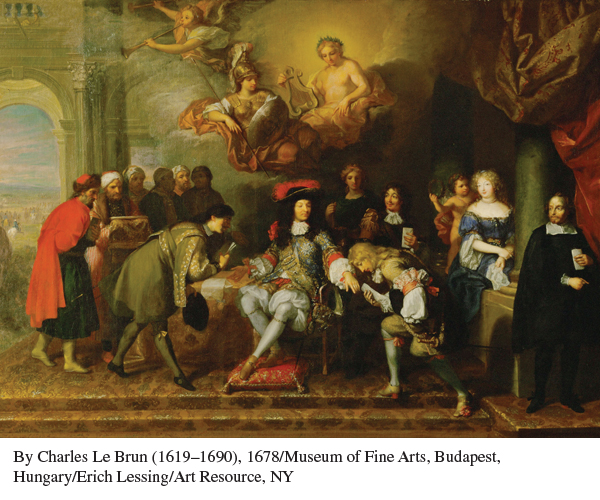A History of Western Society AP®: Printed Page 464-c
CONCEPT 2.1
Absolutism, Constitutionalism, and Revolution
In many states of Europe, absolutism emerged in the seventeenth century as the solution to economic stagnation and political disorder. Kings in some countries, such as France, Spain, Austria, and Prussia, claimed exclusive, absolute power, though in reality they often worked with nobles to achieve their aims. To meet the demands of running their expanding governments, rulers turned to trusted ministers, though they also asserted that they were responsible to God alone and that no other institution or group had the right to check their power. In central and eastern Europe, some rulers made legal, religious, and economic reforms that they hoped would improve society, inspired by new ideas about reason and progress that emerged with the Enlightenment. A small minority of states adopted a different path, placing sovereignty in the hands of privileged groups rather than the Crown, a form of government historians refer to as “constitutionalism.” In England disputes between the monarch and various elite groups over royal claims to power led to a civil war and ultimately to a constitutional monarchy, while in the Netherlands the Dutch established a republic that saw amazing commercial prosperity.
Conflict among various European powers over both domestic and colonial affairs led to a series of wars, culminating in the Seven Years’ War (1756–
